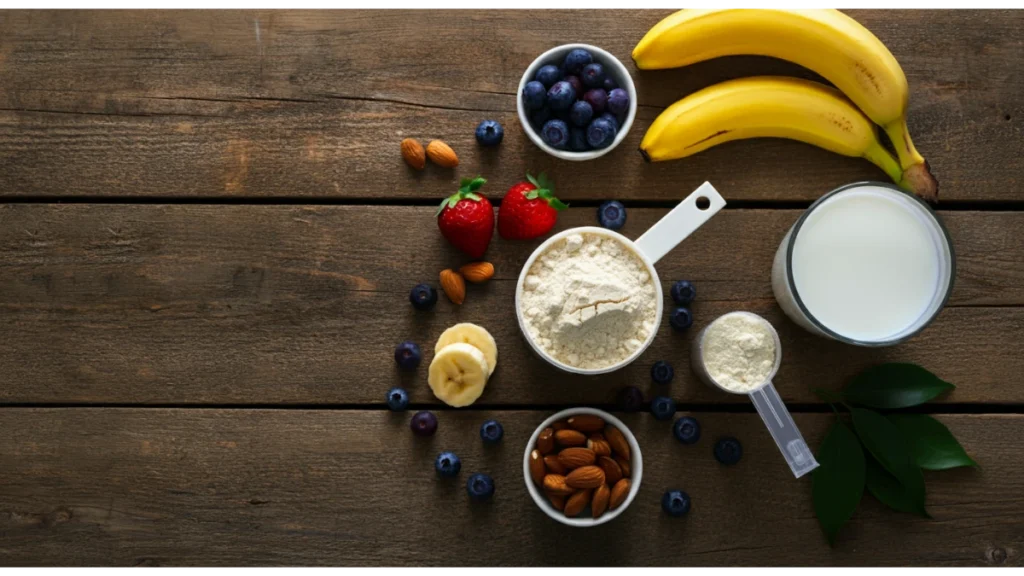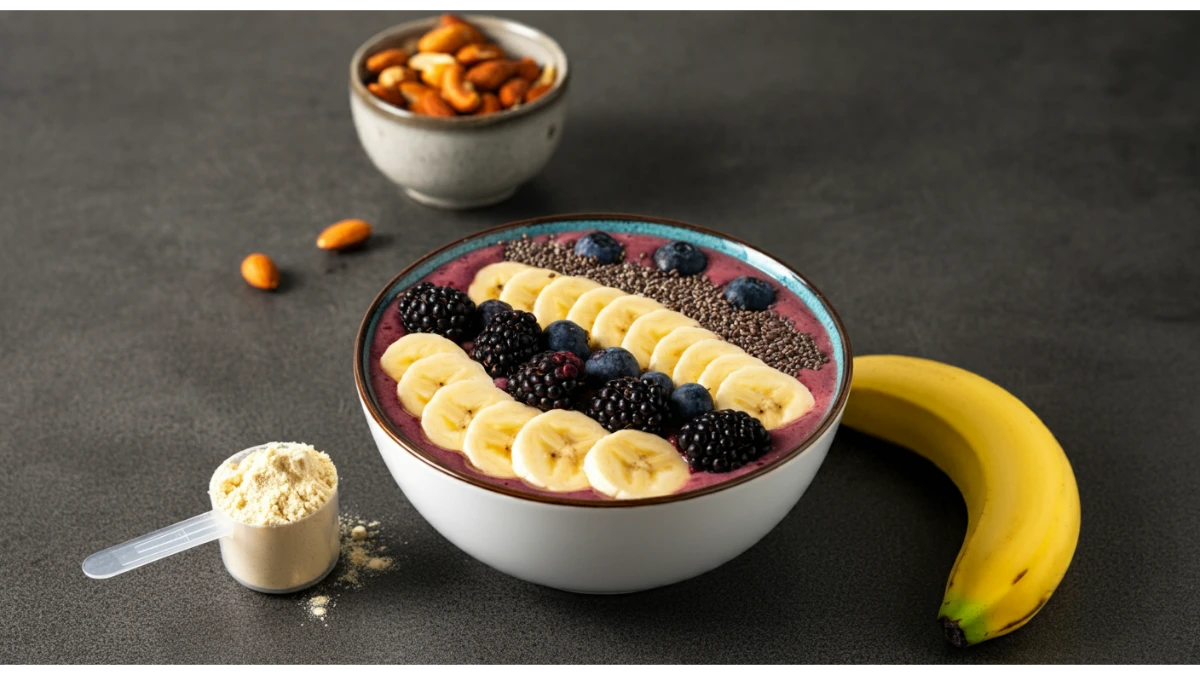Is Whey Protein Vegetarian? Discover the Truth Behind This Popular Supplement
In the ever-evolving world of nutrition and fitness, whey protein has emerged as one of the most popular supplements among athletes, bodybuilders, and health enthusiasts alike. But with its widespread use, a common question arises: Is whey protein vegetarian? This article aims to explore the origins of whey protein, its nutritional benefits, and its suitability for vegetarians, providing you with a comprehensive understanding of this widely consumed supplement.
Whey protein is not just a supplement; it has become synonymous with muscle recovery, weight management, and overall health improvement. However, for vegetarians, understanding the source and processing of whey protein is crucial. This article will delve into the details, share personal insights, and provide practical advice on incorporating whey protein into a vegetarian diet.
Understanding Whey Protein
Whey protein is a premium protein extracted from milk as a byproduct of cheese production. The coagulation of milk results in the formation of curds and the separation of whey. The whey is then collected and processed to remove fats and carbohydrates, resulting in whey protein powder.
The Cheese-Making Process
To understand whey protein better, it’s essential to look at how it’s produced. The cheese-making process begins with the addition of rennet or an acid to milk, which causes it to curdle. This curdling separates the milk into solid curds (which are used to make cheese) and liquid whey. The whey is then collected and processed to remove fats and carbohydrates, resulting in whey protein powder.
The processing of whey protein can vary significantly, affecting its nutritional profile. There are three main types of whey protein, each varying in composition and processing:
- Whey Protein Concentrate (WPC): This form contains about 70-80% protein, with some fats and carbohydrates. It retains more nutrients found in whey, including lactose and bioactive compounds, which can be beneficial for health.
- Whey Protein Isolate (WPI): This type is processed to remove most of the fat and lactose, resulting in a product that contains approximately 90% protein. WPI is often recommended for those who are lactose intolerant or looking for a low-fat protein source.
- Whey Protein Hydrolysate (WPH): This form is pre-digested, meaning it has undergone partial hydrolysis to make it easier to absorb. It is often used in medical protein supplements and infant formulas due to its rapid absorption properties.
Nutritional Profile of Whey Protein

Whey protein is celebrated for its impressive nutritional profile. It is considered a complete protein because it provides all nine essential amino acids that the body cannot synthesize independently. Here’s a closer look at its nutritional components:
- Protein Content: A typical serving of whey protein powder (approximately 30 grams) can provide 20-30 grams of protein, depending on the type.
- Amino Acids: Whey protein is particularly rich in branched-chain amino acids (BCAAs), especially leucine, which plays a crucial role in muscle protein synthesis.
- Vitamins and Minerals: Whey protein contains small amounts of vitamins such as B12, riboflavin, and minerals like calcium and magnesium, contributing to overall nutrition.
Is Whey Protein Vegetarian?
The question of whether whey protein is vegetarian hinges on its source. Whey protein comes from milk, classifying it as an animal-based product. Therefore, it is generally considered acceptable for lacto-vegetarians—those who consume dairy products but avoid meat and eggs. However, it may not be suitable for strict vegetarians or vegans who avoid all animal-derived products.
The Vegetarian Perspective
For vegetarians, the consumption of whey protein can be a beneficial addition to their diet, especially for those looking to increase their protein intake without resorting to meat. It provides a high-quality protein source that can support muscle recovery and overall health.
However, it’s essential for vegetarians to consider the following:
- Dietary Choices: If you are a lacto-vegetarian, whey protein can fit well into your diet. If you follow a stricter vegetarian or vegan diet, you may want to explore plant-based protein alternatives.
- Ethical Considerations: Some vegetarians choose to avoid whey protein due to ethical concerns about dairy farming practices. It’s crucial to research and select products from brands that align with your values regarding animal welfare.
Benefits of Whey Protein
Whey protein offers numerous benefits, making it a popular choice for many individuals. Here are some of the key advantages:
1. Muscle Recovery and Growth
One of the most significant benefits of whey protein is its ability to support muscle recovery and growth. After intense exercise, muscle fibers experience micro-tears, and protein is essential for repairing and building new muscle tissue. The high concentration of BCAAs, particularly leucine, in whey protein stimulates muscle protein synthesis, making it an ideal post-workout supplement.
2. Weight Management
Whey protein supports weight management by enhancing satiety and curbing hunger. High-protein diets have been shown to increase feelings of fullness, leading to lower calorie intake throughout the day. Incorporating whey protein into meals or snacks can help control hunger and support weight loss or maintenance goals.
3. Nutritional Convenience
For individuals with busy lifestyles, whey protein provides a convenient way to increase protein intake. It can be easily mixed into shakes, smoothies, or even baked goods, ensuring you get the nutrients you need without spending too much time in the kitchen.
4. Immune Support
Whey protein contains immunoglobulins and lactoferrin, which can support immune function. Regular consumption may help enhance your body’s defenses against infections and illnesses, making it a valuable addition to your diet, especially during cold and flu seasons.
5. Enhanced Athletic Performance
Athletes often turn to whey protein for its performance-enhancing benefits. Studies have shown that consuming whey protein after exercise can improve recovery time, reduce muscle soreness, and enhance overall athletic performance.
How to Incorporate Whey Protein into Your Diet

Adding whey protein to your diet can be both easy and pleasurable. Here are some practical tips and ideas for using whey protein effectively:
1. Protein Shakes
The most common way to consume whey protein is through shakes. Simply mix one scoop of whey protein powder with water, milk, or a non-dairy alternative in a blender or shaker bottle. You can also add fruits, nut butter, or greens for added nutrition and flavor.
2. Smoothies
Whey protein can be a fantastic addition to smoothies. Blend it with your favorite fruits, vegetables, and a liquid base to create a nutrient-packed drink. For example, a banana, spinach, almond milk, and whey protein smoothie is both delicious and nutritious.
3. Baking
Whey protein can be incorporated into baked goods like muffins, pancakes, or protein bars. Substitute a portion of the flour in your recipes with whey protein powder to boost the protein content without compromising taste.
4. Oatmeal or Yogurt
Mixing whey protein into your morning oatmeal or yogurt is an easy way to increase your protein intake. Simply stir in a scoop of protein powder to your cooked oatmeal or yogurt for a satisfying breakfast.
5. Soups and Stews
For a savory option, consider adding whey protein to soups or stews. Stir in a scoop of unflavored whey protein during the cooking process to enhance the protein content without altering the flavor significantly.
Overcoming Common Challenges
While whey protein is a valuable supplement, there can be challenges associated with its use. Below are some typical challenges along with their solutions:
1. Lactose Intolerance
For individuals with lactose intolerance, whey protein isolate is often a better option. It undergoes additional processing to remove most of the lactose, making it easier to digest. Additionally, there are lactose-free whey protein options available on the market.
2. Allergies and Sensitivities
Those with dairy allergies should avoid whey protein altogether, as it is derived from milk. Instead, consider using plant-based protein powders that provide a complete amino acid profile without the risk of allergic reactions.
3. Taste Preferences
Some individuals may find the taste of whey protein powder unappealing. To enhance flavor, consider trying different brands and flavors, or experiment with adding fruits, spices, or natural sweeteners to your shakes and recipes.
Future Trends in Protein Supplements
As dietary preferences evolve, the market for protein supplements is expanding. Below are several trends to keep an eye on in the upcoming years:
1. Plant-Based Protein Growth
The demand for plant-based protein is on the rise. Many brands are now offering a variety of protein powders made from sources like pea, hemp, and brown rice. These options cater to those looking for vegetarian or vegan alternatives to whey protein.
2. Clean Label Products
Shoppers are increasingly aware of the components present in their supplements. The trend towards clean label products—those with minimal processing and no artificial additives—is gaining momentum. Expect to see more brands offering transparent ingredient lists and sourcing information.
3. Personalized Nutrition
With advancements in technology, personalized nutrition is becoming more accessible. Companies are beginning to offer customized protein powders tailored to individual dietary needs and fitness goals, allowing consumers to optimize their protein intake.
Tips and Tricks for Using Whey Protein
To help you make the most of your whey protein experience, here are some tips and tricks:
1. Experiment with Flavors
Whey protein comes in a variety of flavors, from chocolate and vanilla to more exotic options like cookies and cream. Experimenting with different flavors can keep your shakes and recipes interesting.
2. Monitor Your Intake
While whey protein can be beneficial, it’s essential to monitor your overall protein intake from all sources. Aim to balance your diet with a variety of protein-rich foods, including legumes, nuts, seeds, and whole grains.
3. Stay Hydrated
Drinking plenty of water throughout the day is crucial, especially when consuming protein supplements. Staying hydrated helps your body process protein efficiently and supports overall health.
4. Read Labels
When choosing a whey protein product, read the labels carefully. Look for high-quality brands that use minimal ingredients and avoid artificial additives, sweeteners, or fillers.
FAQs Section
u003cstrongu003eQ: Can vegetarians consume whey protein?u003c/strongu003e
A: Yes, whey protein is generally considered vegetarian as it is derived from milk. However, strict vegetarians who avoid all animal products may choose plant-based protein alternatives.
u003cstrongu003eQ: What are the best alternatives for whey protein?u003c/strongu003e
A: Plant-based proteins like pea, rice, and hemp protein are excellent alternatives for those who prefer not to consume dairy.
u003cstrongu003eQ: How should I store whey protein?u003c/strongu003e
A: Keep whey protein in a cool, dry place and tightly sealed to maintain its quality. Avoid exposing it to moisture.
u003cstrongu003eQ: Is whey protein safe for everyone?u003c/strongu003e
A: While whey protein is safe for most people, those with lactose intolerance or dairy allergies should opt for whey protein isolate or plant-based alternatives.
u003cstrongu003eQ: What is the recommended daily intake of whey protein?u003c/strongu003e
A: The recommended daily intake varies based on individual protein needs, activity level, and dietary goals. A common guideline is to aim for 1.2 to 2.0 grams of protein per kilogram of body weight, including protein from all sources.
Personal Experiences with Whey Protein

As someone who has incorporated whey protein into my diet, I can attest to its benefits. Initially, I was hesitant due to my vegetarian lifestyle. However, after researching the origins and nutritional profiles, I found that whey protein aligns with my dietary choices.
I typically start my day with a whey protein shake, especially after my morning workouts. The convenience of blending a quick shake with fruits and nut butter keeps me energized and satisfied throughout the day. I also enjoy experimenting with different flavors and ingredients, which keeps my routine fresh and enjoyable.
One of my favorite combinations is a chocolate banana shake, where I blend chocolate whey protein with a banana, almond milk, and a scoop of almond butter. It’s not only delicious but also provides me with the necessary nutrients to fuel my workouts.
Conclusion
In conclusion, whey protein is a valuable source of nutrition for many, including vegetarians. Understanding its origin and benefits can help you make informed dietary choices. Whether you’re looking to enhance muscle recovery, support weight management, or simply increase your protein intake, whey protein can be a convenient option.
However, it’s essential to consider your dietary restrictions and preferences. For those who cannot consume dairy, there are plenty of plant-based alternatives available. As the market continues to evolve, consumers will have even more options to choose from.
If you have any questions or want to share your experiences with whey protein, feel free to comment below! Your insights could help others navigate their nutrition journey.

Whey Protein Overview
Ingredients
For Protein Shakes
- 1 scoop whey protein powder Can be flavored or unflavored
- 1 cup milk or non-dairy alternative Almond milk, soy milk, etc.
- 1 medium banana For added sweetness and flavor
- 1 tbsp nut butter Almond, peanut, or cashew butter for extra nutrients
For Baking
- 1 cup flour Substitute a portion with whey protein for protein boost
Instructions
Preparation
- Combine 1 scoop of whey protein powder with milk or non-dairy alternative in a blender.
- Add a banana and nut butter to the blender.
- Blend until smooth and serve immediately.
Baking
- In a baking recipe, replace a portion of flour with whey protein powder.

